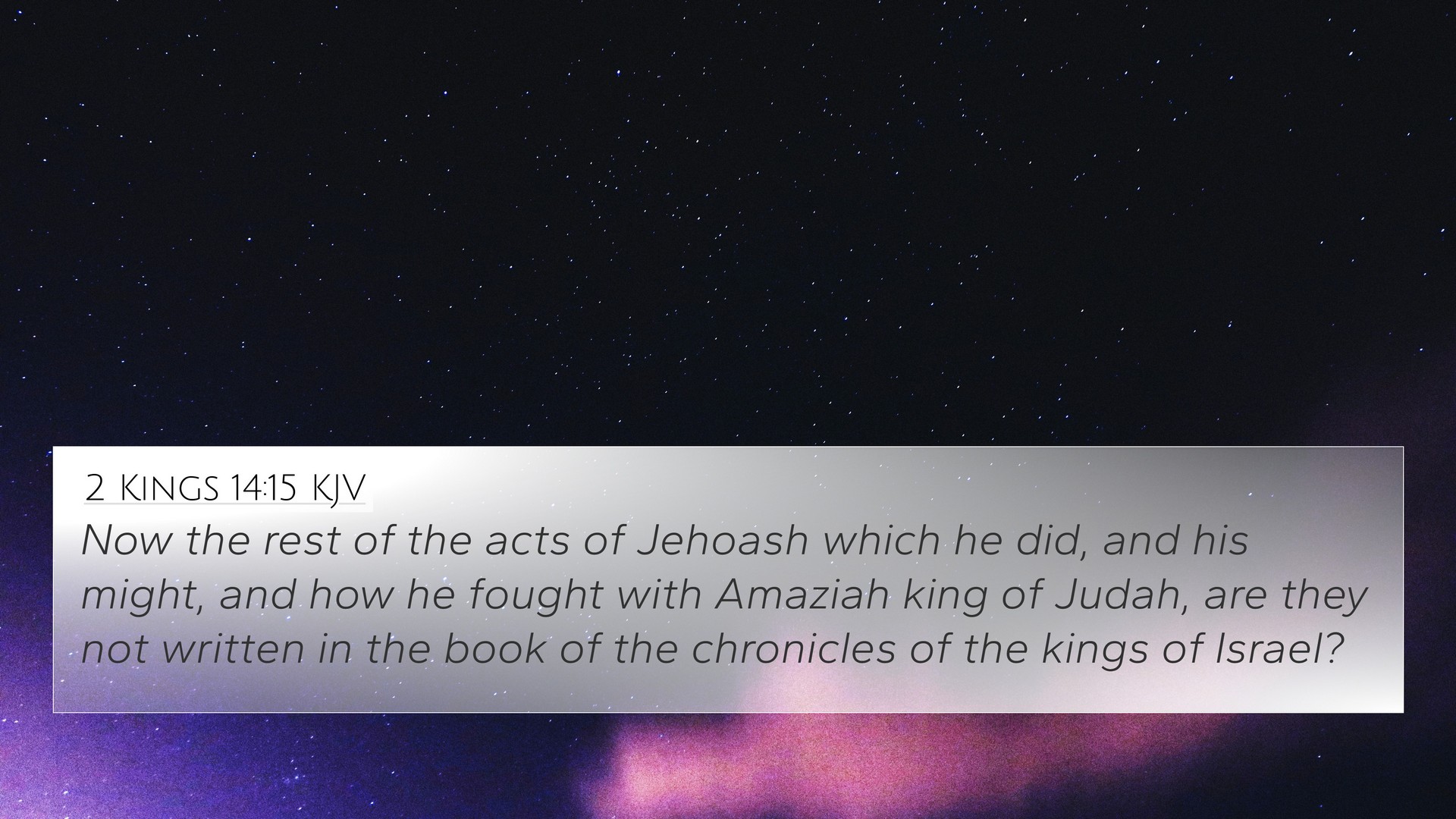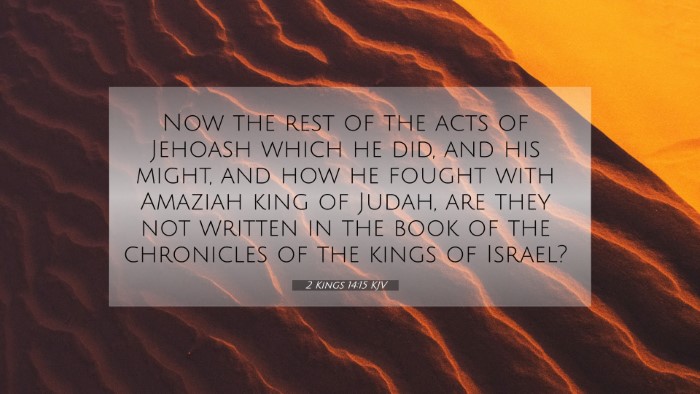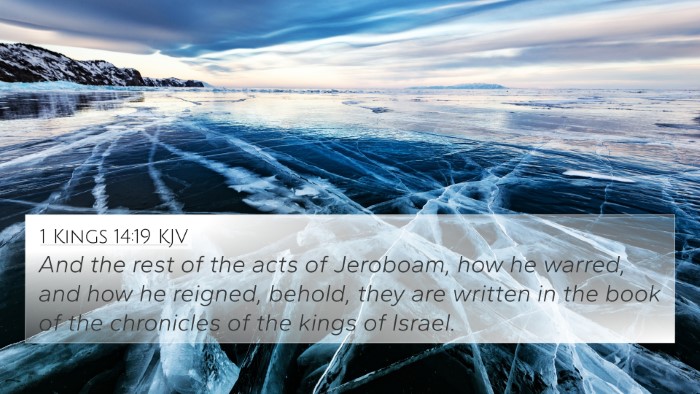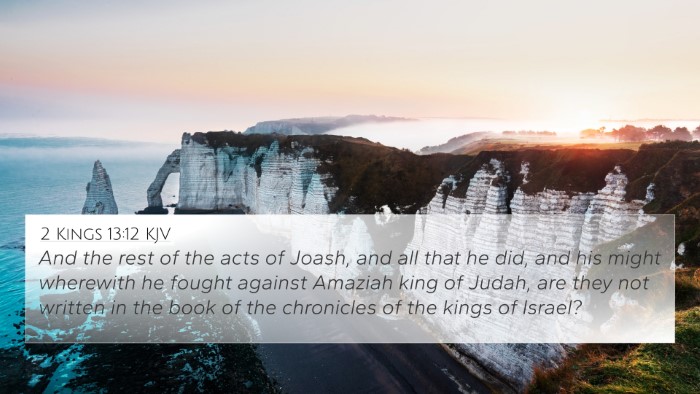Understanding 2 Kings 14:15
Bible Verse: 2 Kings 14:15
In this verse, we learn about the events surrounding the reign of King Jeroboam II of Israel, focusing on the significance of his actions and the consequences they bore.
Summary of Insights from Public Domain Commentaries
This passage provides valuable lessons in leadership, accountability, and the prophetic narrative in Israel's history. The importance of adhering to divine decrees and recognizing the sovereignty of God as a central theme is emphasized by prominent commentators such as Matthew Henry, Albert Barnes, and Adam Clarke.
Commentary Insights
- Matthew Henry: He discusses how Jeroboam II's reign brought political stability yet failed to lead morally. Despite worldly success, he neglected God, leading to later calamities.
- Albert Barnes: Barnes notes that while Jeroboam made Israel prosperous, his reign ultimately disregarded God’s commandments, setting the stage for divine judgment.
- Adam Clarke: Clarke emphasizes the nature of the king's renown and the divine displeasure that often accompanied earthly greatness. He highlights the importance of spiritual integrity over mere political success.
Thematic Bible Verse Connections
This verse is a gateway to understanding larger biblical themes such as kingly accountability and the prophetic warnings throughout scripture. The narrative invites readers to explore various relevant cross-references.
Related Bible Cross-References
- Hosea 4:6: "My people are destroyed for lack of knowledge..." emphasizes the need for spiritual understanding.
- Amos 6:12: "Shall horses run upon the rock? will one plow there with oxen?" reflects the futility of ignoring God's laws.
- 2 Kings 17:22-23: Relates to the consequences of idol worship and disobedience in Israel.
- 2 Chronicles 25:15: Discusses the judgment of God upon disobedient kings.
- Isaiah 9:17: Highlights God’s displeasure with leadership that fails the people.
- 2 Kings 15:10: Provides context on the political turmoil during Jeroboam's reign.
- Deuteronomy 28:15: Explains the blessings and curses linked to obedience and disobedience to God.
- Jeremiah 2:19: Shows how God’s warnings are often disregarded, leading to destruction.
- Micah 6:16: Speaks to the consequences of following in the ways of disobedient kings.
- 1 Timothy 6:9: Relates the perils of seeking wealth without regard to godliness, akin to Jeroboam’s priorities.
Comparative Bible Verse Analysis
When analyzing 2 Kings 14:15, we can see connections and parallels in the narratives of other kings and prophets throughout the Bible. Such analyses reveal the recurring patterns of failure and redemption that characterize the Israelite monarchy.
Tools for Bible Cross-Referencing
For those looking to explore the connections within scripture, various tools can assist in identifying cross-references:
- Bible Concordance: A helpful tool that lists words and phrases to find scripture references.
- Bible Cross-reference Guide: Can help in navigating related scriptures effectively.
- Bible Reference Resources: Including commentaries, study Bibles, and online databases.
- Bible Chain References: Trace themes or topics linking multiple verses together.
- Cross-reference Bible Study Methods: Techniques that enhance understanding of scripture connections.
Conclusion
In summary, 2 Kings 14:15 serves as an important reminder of the dynamics of leadership in biblical history and the consequences of turning away from God. Through careful study of related verses and themes, believers can gain profound insights into God's nature and the importance of obedience. By utilizing various cross-referencing tools and resources, individuals can deepen their understanding of the Bible's interconnectedness.





